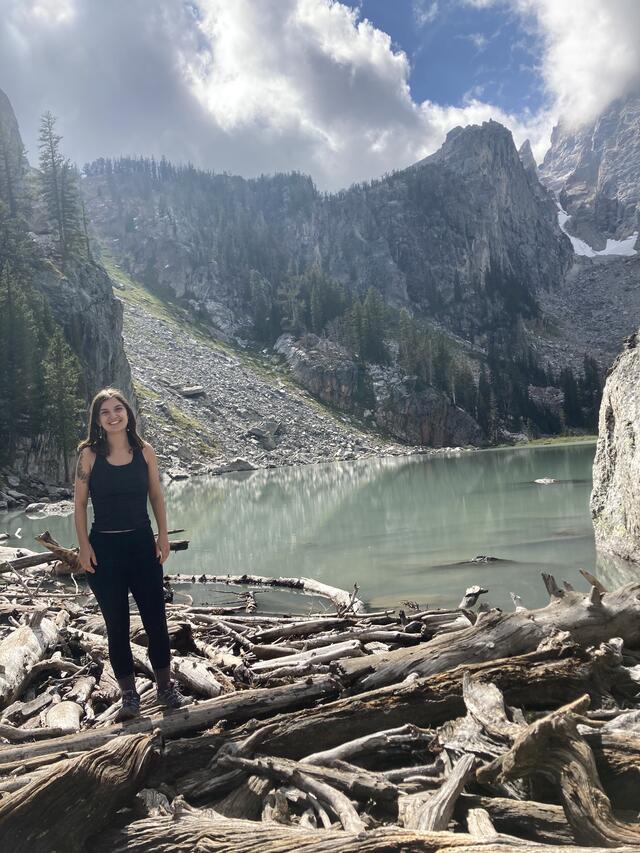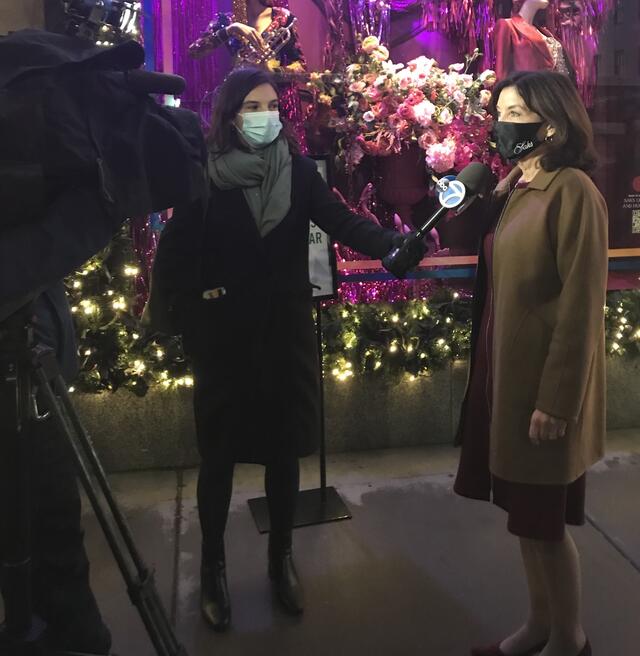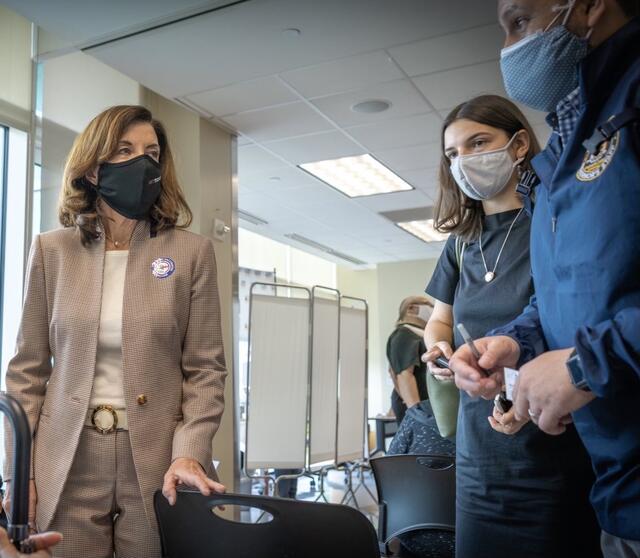
How did Rachel End Up At SIPA?
SIPA magic is 50% incredible professors and 50% the coolest peers you could possibly have. Everyone comes in with devastatingly impressive experiences or an inspiring amount of passion for Doing Good and Changing the World. Today, I spoke with Rachel Swack, another MPA - USP and Management student about her experiences prior to SIPA and why she chose SIPA.

In my introductory blog post, I spoke emphatically about how much one can learn from and with their classmates. Rachel is one of the thoughtful and deeply insightful students that I find myself admiring consistently in class! It is a great privilege to be at SIPA and engage with some of the smartest (and often, kindest!) people you have ever met!
What were you doing prior to joining SIPA?
Before coming to SIPA, I was the Deputy Director of External Affairs for then-Lieutenant Governor Kathy Hochul!

Can you describe your work with Governor Hochul when she was Lieutenant Governor?
I was lucky because my job let me do a wide variety of work. I worked on the policy team and took lead on a lot of downstate community relations and events. Eventually the pandemic hit, and the #1 need in the office was communicating the facts of Covid-19 directly to the public. At that point, my job shifted towards writing speeches, pitching TV stations, and coming up with strategic messaging for social media as it related to the pandemic. At the beginning, there was a lack of information about how to keep yourself and your neighbors safe. We wanted to make sure that all New Yorkers had access to the latest data on risk reduction, flattening the curve, and eventually vaccines. I’m proud that I was able to do a tiny part in getting people the facts about COVID-19 and keeping my New York community safe.
At what point in your position did you feel like you needed to go back to school?
I realized I needed to go back to school because the people who were leading policy in my office all had advanced degrees, particularly MPA’s or MPP’s. I also realized that I needed a stronger foundation of quantitative skills in order to do the type of quantitative analysis that is vital to rigorous policymaking. It was then that I decided to look into graduate programs.
Why did you choose SIPA?
I was interested in urban policy and I figured there was no better place to study that than in New York City! What ultimately sold me on SIPA was what the Urban and Social Policy Concentration director said at an accepted students event– she argued that SIPA’s global focus makes it the best place to learn about cities because New York’s peer cities aren’t D.C. or Boston, they’re Mexico City and Tokyo. Many cities abroad have come up with groundbreaking innovations to address urban social policy issues, and we can develop more creative solutions if we consider those case studies. I had not considered the global perspective but it has become vital to my understanding of public policy even locally.

What value does SIPA add to your already impressive skill set and resume?
The student body is outstanding and dynamic. I have classes where we have discussed affordable housing and rather than having a static, two-sided discussion about whether public housing is good or bad, there are students who have worked in high-level housing policy roles all around the world that bring their unique skills and perspectives to the table! For example, there are models for social housing coming out of Germany, and Singapore that I would not have known about without my classmates. I also have multiple professors who go above and beyond to ensure learning goes beyond the classroom, and who have helped me figure out where I want to continue on my professional journey after SIPA.
Where do you hope to go after SIPA?
I plan to continue pursuing public service. I’m interested in seeing how the public sector can address issues such as homelessness, transportation access, and economic inequality while prioritizing gender equity and racial justice. I’m looking at opportunities to work with federal, state, and local governments, as well as other organizations addressing urban and social policy issues globally